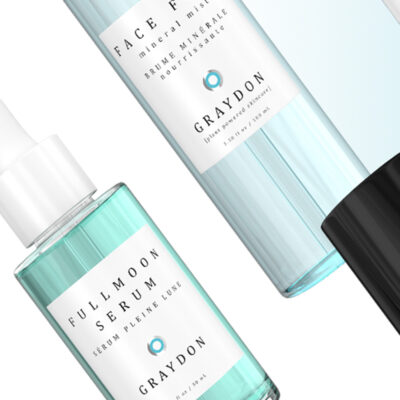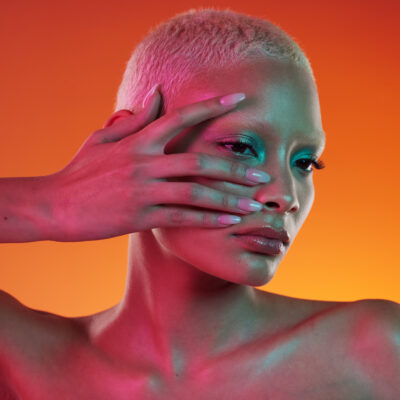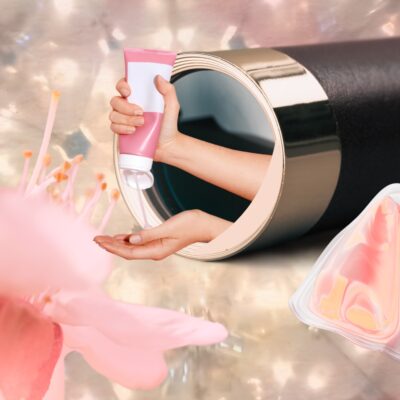
Cosmetic Chemist And Sula Labs Founder AJ Addae’s Predictions For The Beauty Industry Next Year
Last year, cosmetic chemist and Sula Labs founder AJ Addae predicted that rules would rule the beauty industry in 2023. She wasn’t wrong. The Modernization of Cosmetics Regulation Act of 2022 (MoCRA) has been a big topic in the industry this year, although its implementation has been delayed until 2024. Given the delay, Addae believes brands will be forced to button up next year and become more creative in their approaches to product development due to regulatory limitations.
She’s confident the limitations will end up being a good thing for safety and efficacy in the long run. Among several stipulations, MoCRA will require brands generating in excess of $1 million over the last three years to register manufacturing facilities, abide by good manufacturing processes, report adverse reactions to products and provide ingredient lists to the United States Food and Drug Administration.
Addae says, “A lot of the conversations that we’ve had in 2023 on preservation systems and stability had MoCRA been in the mix wouldn’t have been much of a controversy because now we actually have specific guidelines that really confine us to making sure that that is a priority in your product development efforts.” She emphasizes, “Your product should be safe and that should be the bottom line.”
Ahead, Addae elaborates on five themes she expects to be prominent in the beauty industry next year.
More Mini Madness
As the publication Business of Fashion reported last month and Beauty Independent explored in 2017, mini beauty products are huge in the beauty industry. Addae predicts mini madness will continue in 2024. Although there are legitimate concerns about the environmental impacts of mini products, Addae says they’re great for managing inventory, “especially if you’re able to place orders for smaller versions of packaging that you may already have out on the market.” She reasons, “This is also just a new way to have another SKU on your bottom line while recycling a lot more of the resources that you already have available to you.”
Mini products are helpful tools for brands in drawing consumers Addae refers to as gateway customers not necessarily ready to commit to plunking down for full-size products. In a crowded beauty market, she figures there are more beauty shoppers confused and hesitate to try a brand at the price of a full-size product. Addae says mini merchandise “is a way for you to get in front of your target customer and show them, ‘Hey, if we give you just a little bit, you may love it, and you may miss it in your routine.’”And she notes minis can capture younger consumers getting into skincare earlier than past generations who might not have the budget for full-size products.

NICHE Teenage Skincare
There are a number of emerging beauty brands competing in the teen and tween space, including Indu, Petite ’n Pretty, Btwn and Evereden. Addae doesn’t imagine competition in the space will slow down. Instead, she assumes it will increase as brands drill down on niches within it. As an example, she’d like to see a teen skincare line for darker skinned consumers dealing with acne and related hyperpigmentation. Addae says, “I was that consumer and that’s also what got me into skincare.”
The teen and tween skincare space is due to evolve its marketing, too. Brands like Glow Recipe and Drunk Elephant have made inroads with gen alpha consumers without necessarily speaking directly to them. Addae anticipates more brands built to woo adults will be studying the purchasing behavior of teens and tweens and marketing directly to them.
“You would think that they can just get drugstore options, but, for some reason, those don’t cut it for gen alpha these days, and I think folks are really trying to understand why,” says Addae. “They’re becoming older, and those people are the main consumers of TikTok trends. They’re really starting to understand beauty a little bit more, starting to fill their pockets with their high school jobs.”
Sun Protection PRODUCT VARIETY
Addae forecasts innovation accelerating in the sun care category. She highlights the brand Black Girl Sunscreen’s recent launch of gloves designed to protect people’s hands from UV coming from lamps used at nail salons for gel services. Addae says, “It shows that there is an existing market for folks that are wanting to have sun protection that’s not the average sunscreen, which is such a highly regulated category that it’s hard to see innovation outside of just your simple lotions.” The body and face have been the leading focuses of sun care, but Addae wonders whether hair, sports or vacations will play a larger factor in the category.
In the category, mineral sunscreens have been an upstart force. However, Addae says satisfaction with mineral sunscreens has been declining as consumers are unwilling to make sacrifices for mineral sunscreen usage. “Customers are just more focused on getting sun protection and prioritizing that over ingredient specific debates,” she says. “It’s very much just wanting it to work rather than wanting to be aspirational about your choice.”
Aesthetic Treatment Skincare
There’s been an influx of barrier-supporting products of late. Addae foresees the next generation of such products leveraging and elevating the efficacy of aesthetic treatments. She says, “People are already pairing treatments with their products. However, I think we’re going to start to see more products that are paired with aesthetic treatments that are more invasive such as chemical peels [and] microneedling…I’m really excited, too, because this also borders the more clinical sort of aspect of skincare that isn’t outright positioned as medical grade.”
Fragrance Transparency
MoCRA requires that fragrance allergens be disclosed on product labels. As a result, Addae believes there will be a shift toward greater transparency in the fragrance category and brands that are rooted in it could come out on top. Addae says, “Fragrance ingredients are ingredients that the average customer does not understand in terms of how they can categorize clean.”
Addae is interested in brands like Future Society by Arcaea, a company that harnesses biotechnology to produce beauty ingredients. She also points to DedCool and Moodeaux as brands at the forefront of the fragrance category. Addae says, “They’re starting this conversation around fragrance as a form of beauty, being able to assign beauty oriented language to fragrance such as how it makes you feel and changing up your fragrance wardrobe.”




